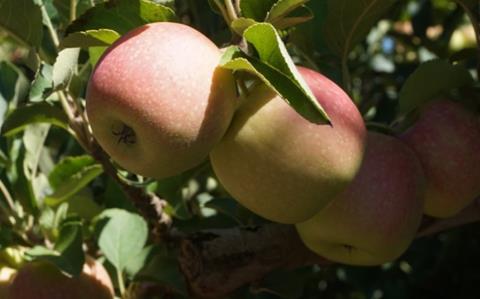
Down at the foot of a rolling hill in the Elgin Valley, deep in the fruit-producing heartland of South Africa’s Western Cape, Joseph Hendricks has a grand plan.
Since 5am, he has been working to ensure that everything runs smoothly on the Norham Estate, where his company Kaapschön Boerdery is harvesting apples and pears.
Four years from now, he says, the company won’t just be producing the fruit and passing it on to a nearby exporter; it will be selling it direct to markets around the world.
Hendricks’ office is dominated by two large whiteboards filled with numbers relating to every inch of the 100ha of surrounding farmland.
As managing director, he knows the figures off by heart, an attention to detail underpinning an ambition that stretches far beyond these orchards.
Hendricks started out as a hawker, a street trader, but over the years built up his own wholesale company, Hendricks Vrugte, before purchasing what is now the area’s only black-owned fruit farm.
That was a hugely important step for a country that evidently wants to encourage other potential entrepreneurs and sustain the Rainbow Nation’s growth as a major international fresh produce supplier.
“We’ve got the facilities. We’ve got the cold rooms, the packing shed and the expertise,” he explains. “We just need the packing lines now. We just need the capital.”
For the time being, Kaapschön sells its fruit to nearby packer-shipper Kromco, which Hendricks says has been instrumental in helping the farm to grow by offering financial and technical support.
Aided by the country’s Black Economic Empowerment (bee) initiative, the Norham Estate is now home to 68ha of apple trees and 9ha of pear trees, and reportedly boasts export-grade pack-outs of 75-80 per cent.
Accessing markets outside of South Africa remains a challenge, but Hendricks believes it is one that can be overcome. “My idea is to become the first black grower-packer-exporter,” he explains.
“At the moment, my supply chain ends at the farm gate, but if I can reach the consumer [myself] then the returns will be better. It costs me to enter the packhouse. We are already in the domestic market, but we’re now aiming for exports.”



